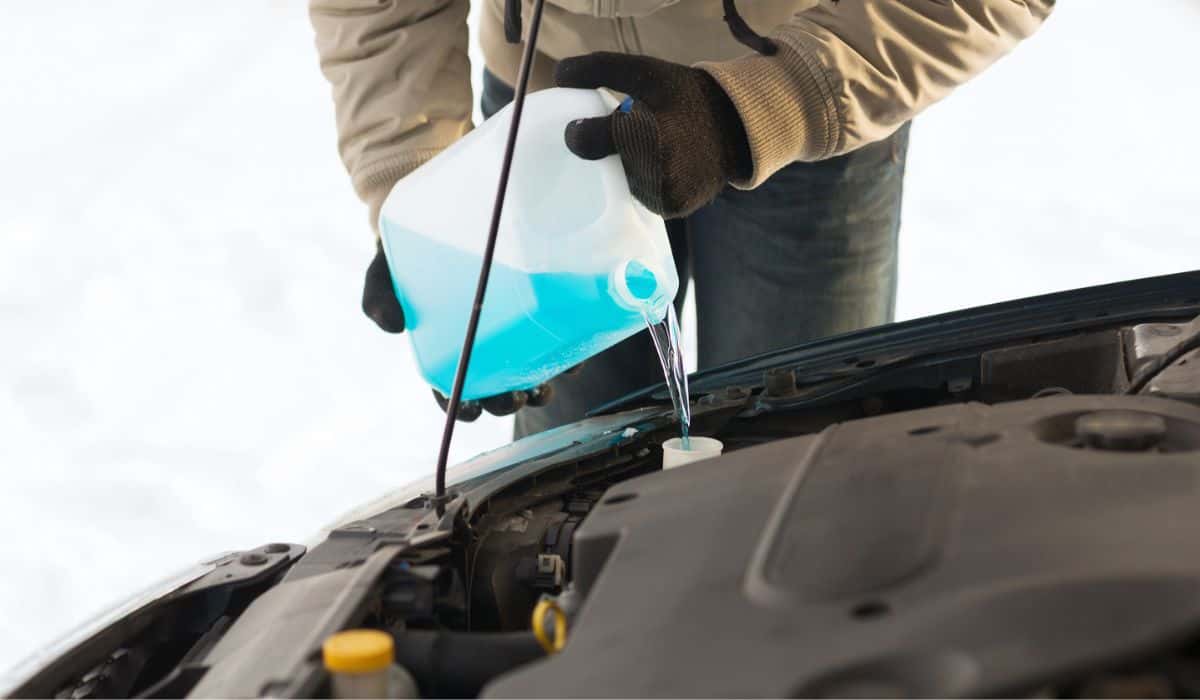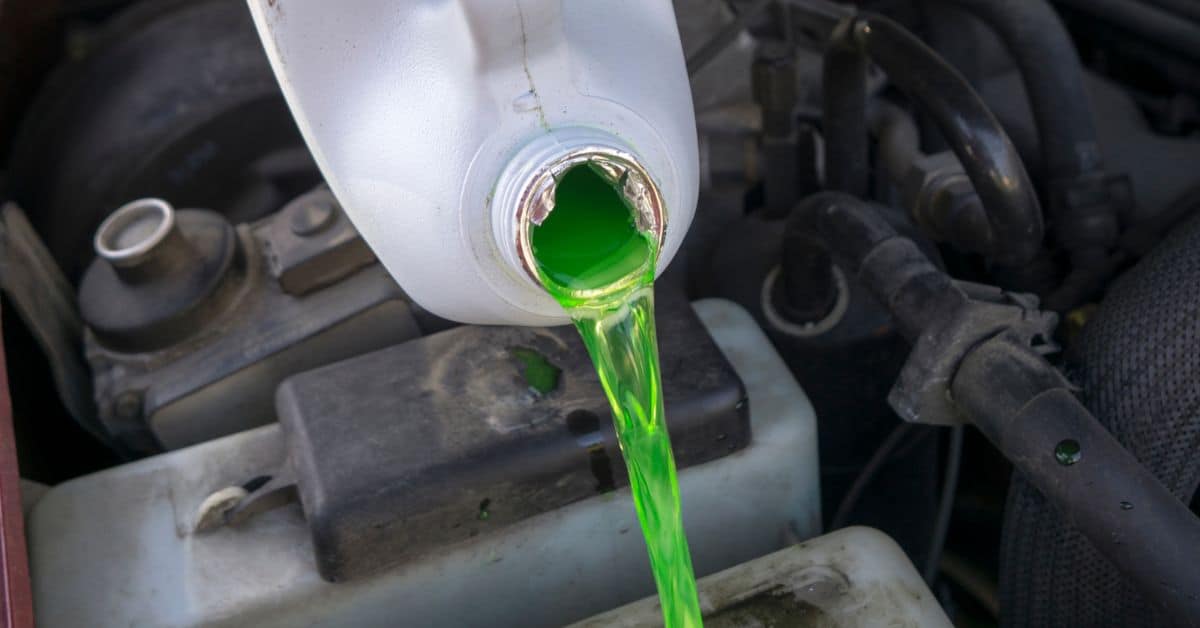Can Antifreeze Eat Through Plastic? And How to Store it Properly
Antifreeze is an essential part of your car’s cooling system. Without the right mixture, your car won’t function correctly and will suffer damage. But how long does antifreeze last, and how do you store leftover solution?

Antifreeze won’t eat through plastic and has a nearly indefinite shelf life. It’s best to store leftover coolant in metal or plastic containers with a lid. Store the jug over a tarp or non-porous concrete to prevent damage if there’s a leak. Always use safety equipment when handling antifreeze.
You’ll need to use suitable materials and storage methods if you find yourself with extra antifreeze. It’s also important to understand your state’s laws on how to recycle old antifreeze and coolant. Let’s take a deeper dive into what you need to know.
Can Antifreeze Eat Through Plastic?
Antifreeze (on Amazon) is a glycol-based fluid primarily made from ethylene or propylene glycol. These powerful chemicals can be toxic to humans, animals, and the environment. Fortunately, leftover antifreeze should not eat through plastic.
It’s common to store leftover antifreeze in plastic containers, like old milk jugs or automobile fluid containers. These containers aren’t likely to leak, but you might experience issues using flimsy plastic containers.
For long-term storage, it’s better to use thicker plastics, like polyvinyl chloride (PVC). PVC or type-3 plastic is better suited for long-term antifreeze or other fluid storage.
What’s the Best Way to Store Leftover Antifreeze?
It’s best to store leftover antifreeze in metal or plastic containers, which should always be covered with a lid. Ideally, the container should be held over a tarp or non-porous concrete surface to prevent damage if the container springs a leak.
You can store antifreeze in reconditioned jugs that you can find from recycling services. Reconditioned barrels are decontaminated and constructed following EPA guidelines, so you can safely transport them to and from recycling centers.
Be sure to read up on your state’s guidelines to ensure you use the proper containers and label them correctly before recycling. You can also find local recycling centers near you at Earth911.
And remember: Whenever you handle antifreeze or coolant, protective equipment like gloves, face masks, and goggles, are a must.
What You Shouldn’t Use to Store Antifreeze
If you’re storing leftover antifreeze in your garage for future use, a typical plastic jug won’t cut it. Antifreeze must be stored and recycled in the correct containers to avoid harm to humans, animals, and the environment.
Here’s some tips to for making sure you store antifreeze correctly and safely:
- Don’t allow antifreeze to mix with other waste chemicals, like oil, degreaser, transmission fluid, etc.
- Don’t use containers lined with pain, resin, or other substances that could contaminate the used coolant.
- For safety purposes, avoid using food or beverage jugs to store antifreeze.
- Don’t cross-contaminate any tools or funnels used to pour antifreeze. Antifreeze equipment should only be used with antifreeze.
- Antifreeze that’s contaminated with other chemicals cannot be repurposed. Don’t pour contaminated fluid down the drain. Instead, label the container and take it to a recycling service, so they dispose of it properly. You can find local recycling centers in your area with Earth911.
- Contact your local Waste Management Department to find the closed recycling facility for uncontaminated antifreeze. You’ll need to ask the department for hazardous chemical disposal sites for contaminated antifreeze.
- If you can’t contact your state’s Waste Management Department, you can ask your local mechanic to dispose of leftover or used antifreeze.
What’s the Shelf Life of Antifreeze?

If you’re storing leftover antifreeze in your garage, you’re probably curious about the shelf-life, right? Fortunately, the chemicals inside sealed bottles of antifreeze are stable and have a nearly indefinite shelf life.
Opened containers will be usable for several years, especially if they’re stored safely in the original container. Antifreeze that has not been mixed with water typically lasts longer than pre-mixed solutions, but both have long shelf lives.
That said, your mileage will significantly vary if your storage container has dirt, debris, and other contaminants and isn’t stored correctly.
You can use a partial jug of antifreeze to create an additional solution to top off your radiator, as long as it’s stored correctly and safely. Alternatively, you can use old jugs to flush and refill your radiator when necessary.
